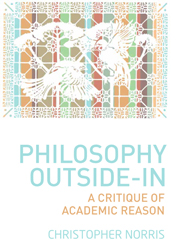Book contents
- Frontmatter
- Contents
- Dedication
- Introduction
- 1 How Not to Defeat Scepticism: Why Anti-realism Won't Do the Trick
- 2 Great Philosophy: Discovery, Invention and the Uses of Error
- 3 Under Which King, Bezonian? Experimental Philosophy versus Thought Experiment
- 4 Outside the Box: On the ‘Extended Mind’ Hypothesis
- 5 Inaesthetics and Transitory Ontology: The Case of Political Song
- 6 Speculative Realism: An Interim Report
- 7 Provoking Philosophy: Shakespeare, Johnson, Wittgenstein, Derrida
- Index
5 - Inaesthetics and Transitory Ontology: The Case of Political Song
Published online by Cambridge University Press: 05 March 2014
- Frontmatter
- Contents
- Dedication
- Introduction
- 1 How Not to Defeat Scepticism: Why Anti-realism Won't Do the Trick
- 2 Great Philosophy: Discovery, Invention and the Uses of Error
- 3 Under Which King, Bezonian? Experimental Philosophy versus Thought Experiment
- 4 Outside the Box: On the ‘Extended Mind’ Hypothesis
- 5 Inaesthetics and Transitory Ontology: The Case of Political Song
- 6 Speculative Realism: An Interim Report
- 7 Provoking Philosophy: Shakespeare, Johnson, Wittgenstein, Derrida
- Index
Summary
I
My thinking for this chapter involved a progressive narrowing of focus from ontology of art to ontology of music and thence, via ontology of song, to that even more specific or pared-down object domain that I have dubbed (in what is probably a nonce usage of the phrase) ‘the ontology of political song’. Why should anyone propose so curious a topic or so strange a conjunction of three distinct topics – ontology, politics and song – which could be conjoined only through some perverse desire, as Dr Johnson somewhat unfairly remarked of the metaphysical poets, to yoke incompatibles by violence together? If ontological considerations have any place in the discussion of music then that place needs earning by some hard argument since music is surely, of all the arts, the hardest to pin down, define or characterise in terms of its ontological status. As regards particular musical works this has to do chiefly with their distinctive and perduring mode of existence quite apart from their more or less extensive history of variant performances or interpretations. Such problems become all the more daunting when politics enters the picture with its effect of creating a highly localised or context-specific link between ‘work’ (if that concept has any purchase here), performance history and particular socially mediated instances of production/reception.
- Type
- Chapter
- Information
- Philosophy Outside-InA Critique of Academic Reason, pp. 150 - 180Publisher: Edinburgh University PressPrint publication year: 2013



